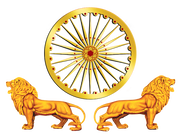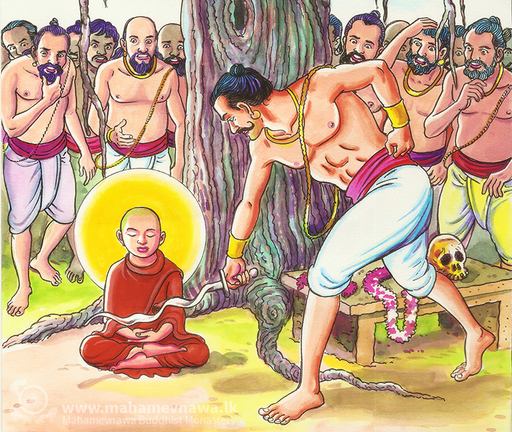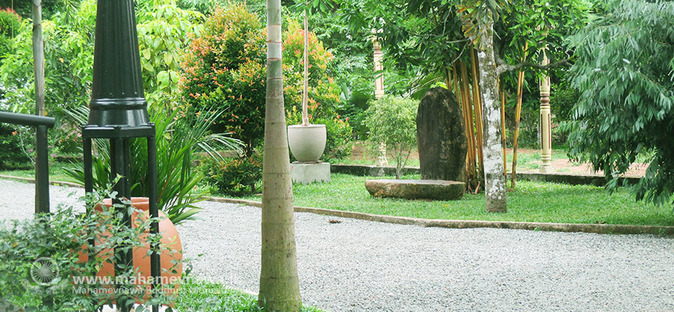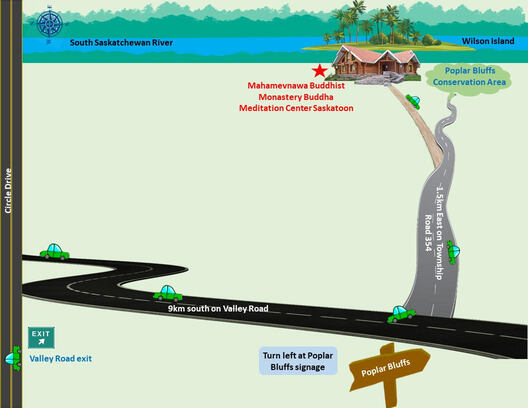|
NAMO BUDDHAYA!
The Supreme Buddha taught us four dangers of engaging in evil (unwholesome) acts by body, speech and mind. They are the danger of self-accusation, the danger of accusation by others, the danger of punishment, and the danger of being born in a bad destination. 01. One accusing one’s own-self is a serious consequence of engaging in evil acts by body, speech and mind. One may think that none in this world knows the evil acts one has done, thus, may wish no dire consequences; despite that, one’s own-self accuses him or her day and night. One will not be able to eat, carry out routine work, rest and sleep peacefully because one repents internally for the evil acts one has done. When, one who has done evil acts sits in solitude, his or her mind enshrouds with the thoughts of pain and apology. When one hears a group of people discussing an evil act done by another man or women, internally, one starts feeling guilty of one’s own evil acts and accuses one’s own-self. Thus, one who has done evil acts cannot avoid the danger of self-accusation. The Buddha said self-accusation is the first danger of engaging in evil acts by body, speech and mind. Therefore, wise ones, knowing the danger of self-accusation, do not engage in evil acts by body, speech and mind; instead, they engage in wholesome acts by body, speech and mind. Thus, the wise ones avoid the danger of self-accusation; they live in peace.
1 Comment
Namo Buddhāya!
Loving-kindness meditation (Mettā Bhāvanā) The way to cultivate the mind with loving-kindness… Mettā (Maitri) or loving-kindness is the true friendship that one exercises toward oneself and others. If one is friendly to oneself, that person will not harm himself/herself. If a person is friendly to others, that person would not harm others’ lives. Therefore, the friendship that brings good to oneself and others is called Mettā. Two ways of cultivating the loving-kindness meditation are mentioned in Anuruddha Sutta in Majjima Nikāya. Arahant Anuruddha Thero has explained those two ways of cultivating the loving-kindness meditation. These two methods are Appamānha Chētō Vimukkti and Mahaggata Chētō Vimukkti. එ්යි රඹා…! මෙහෙ වර යකෝ…! අරූ පැනලා යන්ඩ හදාවි. බැරිවෙලාවත් ඌ පැනලා ගියොත් මතක තියාගං…. තෝවයි මං බිලි දෙන්නේ….”
රඹා ගැස්සිලා ගියා. ඇස් ලොකු කරගත්තා. මහා භය පක්ෂපාතීකමක් ඇති කරගෙන පිළිතුරු දුන්නා. “න්…. නෑ… නායකතුමනි…, අපි ඒකගෙ කකුල් දෙකයි, අත් දෙකයි කිටි කිටියේ බැඳලා තියෙන්නේ…. හෙලවෙන්ඩ බැරි වෙන්න බිම පතබාවලයි තියෙන්නේ… ආයෙ ඉතින් ඌ පූජාවට මිසක්කා වෙන දේකට ලේස්ති නෑ…” නායකතුමා ආයෙමත් බෙරිහන් දුන්නා. “එ්යි කන්කොටා…. තෝ වර මෙහෙට! කෝ අමුඩයා…?” “මෙ…. මෙහෙ එනවෝ…. නායකතුමනි… මං මේ… අද පූජාවට වදමල් ලේස්ති කොරනවා… මල්මාලා හතක්ම හදන්ඩ එපායැ…” “හ්ම්… හොඳා…. හැබැයි යකෝ…. මතක තියාගං… හරීම ලස්සනේට මාල හත තියෙන්ඩ ඕනෑ… තෝ දන්නවානේ… මයෙ හැටි!” අමුඩයා ඔළුව බිමට පාත් කරගත්තා. දකුණු අත ඔසොවා කෙස් වැටිය කසන්න පටන් ගත්තා. ආයෙමත් වදමල් ළඟට ගිහින් බිම ඇණ තියාගත්තා. කන්කොටා තැටියක වී දමලා පුළුස්සනවා. දේවාතාවුන්නාන්සෙට මිනිස් බිල්ල දෙන දවසට වී පොරි තියෙන්ඩම එපායැ. අනූ…. අද නුඹ ඉතාම සොඳුරුයි අනූ…. කෝ…? මොහොතක් සිටින්න… ඔය හිස මතින් නළලත වැටෙන රන් තැල්ල ස්වල්පයක් මෑත් වී තිබේ…. සිටින්න…. මා සදන්නම්.”
විමලා දෙසට අනුලා හිස මෑත් කළා ය. එවිට විමලා ඉතා ඕනෑකමින් ඇගේ හිස රඳවා ඇති රන් තැල්ල ඉතා සීරුවෙන් නළල මත තැබුවා ය. අනුලාගේ වරළස සැරසූ රතු මල් කළඹ සියුමැලි ලෙස ඇඟිලි තුඩුවලින් පිරිමැද සකස් කළාය. “කවුද අනූ…. අද තිට කහවණු පුදන්නේ….?” අනුලා කොක්හඬලා සිනාසුණා ය. රන් වළලු පිරී ගිය දෑත් උඩට ඔසොවා කෙස් රොද සකස් කළා ය. ඇසක් වසා නැටවූවා ය. තොල් සඟල උල්කොට මිමිණුවා ය. “විමා….. අද මට මුණගැහෙන්නේ කාරායන. දන්නැද්ද අනේ…. අර වාත්ස්යායන බ්රාහ්මණතුමාගේ පුත්රයා. ඔහු මා වෙත මේ එන්නේ දෙවන වතාවට. නමුත් මා කියා සිටියා කහවණු පන්සියයක් මදි බව….. මෙවර නම් කහවණු හත්සියයක් පොරොන්දු වුණා…… රාජ්ගුන්ධයේ ලෂ්ටිවනය අසල සමාගා උද්යානයටයි මා අද යන්නේ…. එහිදි තමයි අපි හමුවන්නේ….” |
AuthorMahamevnawa Saskatoon ArchivesCategories |
Directions to Monastery1. Take Valley Road exit from Circle Drive and drive 9 km.
2. Turn left at the Poplar Bluffs signage on to Township Road - 354. 3. Drive 1.5 km on 354 Township road. This way is to Poplar Bluffs Conservation Area 4. Turn left on to the driveway at the multi-color Buddhist flag at the gate. That is our driveway. It's is a log house. Date and Time in Saskatoon |
|
Mahamevnawa Buddhist Monastery Saskatoon Inc. Charitable Registration No. 81818 5522 RR0001
© All rights reserved by Mahamevnawa Buddhist Monastery Saskatoon




 RSS Feed
RSS Feed

